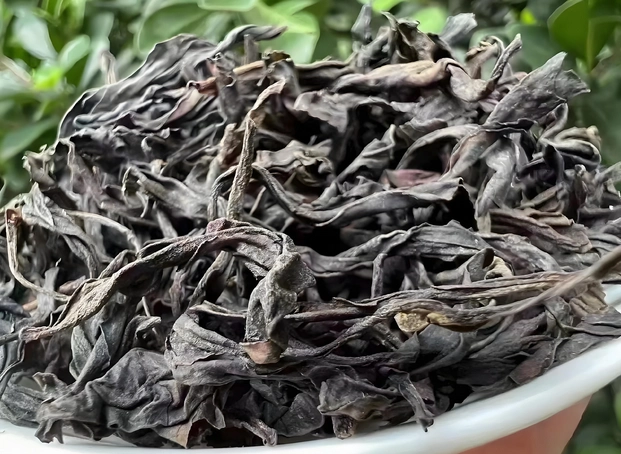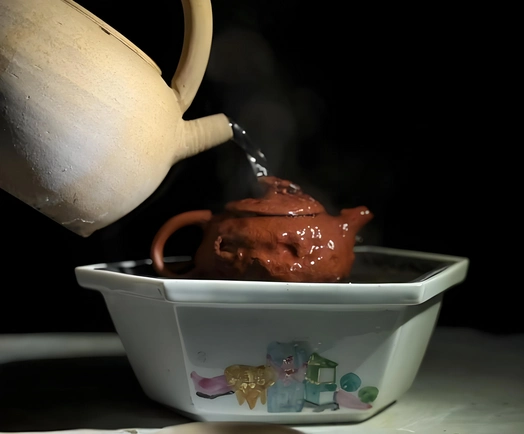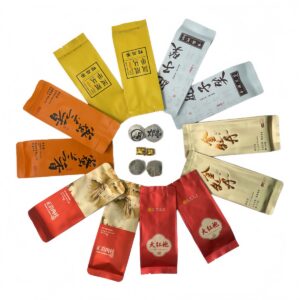Oolong Tea for Immune System and Wholesome Vitality
Oolong tea for immune system support is one of nature’s most fragrant allies, wrapping your senses in a warm embrace while fortifying your defenses. From the very first aromatic swirl of steam, you sense a wave of healing rolling through your body—like walking through a sun-dappled grove where each leaf holds a treasure of wellness. In our fast-paced world, where stress, pollution, and dietary imbalances can undermine immunity, oolong tea emerges as a soothing ritual that blends sensory pleasure with tangible benefits. As you cradle your teacup, inhale the gentle floral bouquet mingled with rich, toasted malt notes. Let each sip remind you that self-care can be as simple as steeping a few leaves in pure, hot water.
Over centuries, traditional medicine systems have revered oolong tea not only for its delightful flavor but for its ability to strengthen the body’s defenses. Modern science is now confirming what tea masters have known for generations: oolong’s unique polyphenols, catechins, and theaflavins can significantly bolster immune function. Whether you’re recovering from a seasonal cold or seeking to build long-term resilience, oolong tea for immune system support offers a holistic approach.
In this article, we’ll explore oolong’s immune-boosting powers, its role in gut health synergy, how it helps regulate blood sugar, aids detoxification, and even slows aspects of aging. We’ll also share guidance on selecting premium leaves, mastering brewing techniques, and weaving oolong tea into a balanced, healthful lifestyle. So come, let’s journey through the aromatic valleys of oolong tea and discover how each cup can unlock a stronger, more vibrant you.

1. Understanding the Immune-Boosting Power of Oolong Tea
1.1 Key Antioxidants in Oolong Tea
At the heart of oolong tea for immune system enhancement lies a symphony of antioxidants—polyphenols, catechins, and theaflavins that neutralize harmful free radicals. Unlike green tea, which focuses more on catechins, and black tea, which emphasizes theaflavins, oolong tea offers a unique blend of both classes due to its partial oxidation. These compounds work in concert to:
- Combat Oxidative Stress: Free radicals can damage cells and weaken immune responses. Oolong polyphenols mop up these rogue molecules, preserving the integrity of immune cells.
- Modulate Immune Pathways: Studies show that oolong’s antioxidants can regulate cytokine production—chemical messengers that instruct white blood cells—thus fine-tuning inflammation and preventing immune overreaction.
With each sip of oolong tea, you invite these potent molecules to patrol your body, quietly strengthening your defenses and nurturing cellular resilience.
1.2 How Oolong Tea Strengthens White Blood Cells
White blood cells—your body’s frontline warriors—require a steady supply of nutrients and signaling compounds to function at peak performance. Oolong tea contributes by:
- Enhancing Phagocytosis: Macrophages and neutrophils rely on a balanced redox state to engulf and neutralize pathogens. Oolong’s antioxidants help maintain that balanced environment.
- Boosting Natural Killer (NK) Cell Activity: Research has revealed that certain oolong polyphenols can activate NK cells, which identify and destroy virus-infected or cancerous cells.
- Supporting Lymphocyte Proliferation: T and B lymphocytes orchestrate targeted immune responses. Compounds in oolong have been shown to accelerate their maturation and coordination.
Imagine a bustling city of immune cells, each armed with an awareness that toxins and invaders could strike at any moment. By incorporating oolong tea for immune system fortification into your daily routine, you infuse that cellular metropolis with renewed vigor, allowing it to respond swiftly and effectively to microbial threats.
2. Oolong Tea and Gut Health Synergy
2.1 Gut Microbiome’s Role in Immunity
Your gut is not just a digestive pipeline; it’s a thriving ecosystem housing trillions of bacteria that profoundly influence your immune system. A healthy microbiome:
- Produces Short-Chain Fatty Acids (SCFAs): These molecules—such as butyrate—nourish colon cells, maintain intestinal barrier integrity, and regulate inflammation.
- Optimizes Nutrient Absorption: Ensuring vitamins and minerals (e.g., vitamin D, zinc) critical for immune function are readily available.
- Modulates Immune Cell Development: Gut-associated lymphoid tissue (GALT) educates T and B cells to differentiate between friend and foe.
Disturbances in this microbial community can lead to “leaky gut” and chronic inflammation, both of which undermine systemic immunity. Recognizing oolong tea for immune system support as also a tonic for gut health highlights the tea’s multifaceted benefits.
2.2 Oolong Tea for Gut Health: Balancing Bacteria
Oolong tea fosters a balanced gut ecosystem through:
- Prebiotic Effects: The polyphenols in oolong serve as nourishment for beneficial bacteria, including Bifidobacterium and Lactobacillus species.
- Anti-inflammatory Action: By suppressing overgrowth of harmful bacteria (e.g., certain Clostridium strains), oolong tea reduces endotoxin-induced inflammation.
- Gut Motility and Digestion: Mild caffeine and theanine stimulate gentle peristalsis, preventing constipation and fostering regular elimination of waste and toxins.
For example, sipping oolong tea for immune system support after a heavy meal can help maintain swift digestion, reducing the risk of bacterial overgrowth in the small intestine. Over time, this creates a positive feedback loop: a healthier microbiome enhances nutrient absorption—fueling immune cells—while a robust immune system safeguards the gut lining.
3. Oolong Tea and Blood Sugar Balance
3.1 Preventing Blood Sugar Spikes for Immune Support
Stable blood sugar is critical for immune competence. Spikes and crashes can:
- Weaken White Blood Cell Function: Glycemic volatility promotes oxidative stress that hinders phagocytosis.
- Fuel Chronic Inflammation: Elevated glucose increases pro-inflammatory cytokines, diverting immune resources from pathogen defense.
- Impair Vaccine Efficacy: High blood sugar has been shown to diminish antibody responses.
Herein lies an additional layer to oolong tea for immune system synergy: by incorporating oolong tea into meals, you help blunt post-meal glucose surges. A study in the Nutrition Research journal found that participants who consumed oolong tea with carbohydrates experienced significantly lower blood glucose levels than those who drank water. This smoother glucose trajectory empowers your immune cells with consistent energy, optimizing pathogen surveillance and response.
3.2 Polyphenols That Help Regulate Glucose
Oolong’s polyphenols favorably modulate carbohydrate metabolism by:
- Inhibiting Digestive Enzymes: Certain oolong compounds reduce alpha-amylase and alpha-glucosidase activity, slowing starch and sugar breakdown.
- Enhancing Insulin Sensitivity: Oolong catechins improve the ability of insulin to transport glucose into cells, preventing insulin resistance.
- Stimulating Glucose Uptake: Some components upregulate glucose transporter proteins on muscle cell membranes, encouraging efficient use of sugar.
By selecting oolong tea for immune system benefits over sugary drinks or processed snacks, you naturally support a balanced glycemic response—one more way oolong lends strength to your body’s defenses.

4. Oolong Tea for Detox and Immune Defense
4.1 Liver Cleansing Benefits of Oolong Tea
Your liver is the body’s primary detox organ, filtering toxins and metabolizing drugs or environmental pollutants. A well-functioning liver indirectly fuels your immune system—preventing toxin accumulation that can drive chronic inflammation and immune overload. Oolong tea assists liver health by:
- Encouraging Phase II Detoxification: Oolong polyphenols upregulate enzymes like glutathione S-transferase, promoting conjugation and elimination of harmful compounds.
- Protecting Hepatocytes: The tea’s antioxidant properties shield liver cells from oxidative damage, preserving their ability to regenerate and process toxins.
- Stimulating Bile Flow: Bitter compounds in oolong enhance bile secretion, which helps emulsify fats and flush lipid-soluble toxins.
When you sip oolong tea for immune system enhancement, you also nourish the organ that quietly purifies your bloodstream—keeping your internal environment clean and supportive of robust immunity.
4.2 Eliminating Toxins to Strengthen Immunity
Accumulated toxins—heavy metals, pesticides, and environmental chemicals—can depress immune function. By promoting effective detox pathways, oolong tea:
- Reduces Systemic Inflammation: Lowered toxin loads mean fewer danger signals to immune cells, enabling them to focus on actual threats.
- Preserves Nutrient Stores: Detoxification processes that run smoothly spare essential vitamins and minerals from depletion, ensuring immune cells have the resources they need.
Pairing oolong tea for immune system rituals with a diet rich in cruciferous vegetables (broccoli, kale), lean proteins, and healthy fats can supercharge your body’s natural detox capabilities. Each cup of oolong becomes a step toward a leaner, cleaner bloodstream—an environment where immune cells thrive.
5. Oolong Tea and Aging: Preserving Vitality
5.1 Anti-Aging Effects of Oolong Polyphenols
Aging gracefully is not just about appearance—it’s about maintaining resilient immunity and cellular function well into your golden years. Oolong tea’s unique blend of polyphenols can help mitigate age-related immune decline by:
- Protecting Telomeres: Oxidative stress accelerates telomere shortening, a hallmark of cellular aging. Oolong’s antioxidants help guard telomere integrity.
- Modulating Senescent Cells: Senescent (dysfunctional) cells accumulate with age, emitting inflammatory signals. Oolong compounds promote autophagy—a process that clears senescent cells, supporting tissue renewal.
- Enhancing Mitochondrial Function: Healthy mitochondria are crucial for immune cell energy supply. Oolong catechins support mitochondrial biogenesis, keeping immune cells robust.
Incorporating oolong tea for immune system resilience becomes a strategy for combating “inflammaging”—the low-grade, chronic inflammation that underlies age-related diseases.
5.2 Protecting Cells from Age-Related Decline
As you age, your thymus gland—which produces T-cells—gradually shrinks, and immune cell proliferation slows. By providing a steady dose of protective antioxidants and anti-inflammatory compounds, oolong tea can:
- Preserve Thymic Function: Research in rodent models suggests that regular tea consumption can slow thymic involution, maintaining youthful T-cell output.
- Support Immune Surveillance: Oolong polyphenols enhance the activity of NK cells and macrophages, ensuring that your body continues to detect and eliminate pathogens or aberrant cells.
- Protect Endothelial Health: Strong cardiovascular function is crucial for efficient immune cell trafficking. Oolong tea’s vascular benefits help maintain healthy blood flow.
Every cup of oolong you savor becomes a daily investment in your body’s longevity—sharpening defenses and upholding cellular integrity as the years advance.
6. Choosing the Best Oolong Tea for Immune Support
6.1 Light vs. Dark Oolong Tea Varieties
Not all oolong teas are created equal when it comes to oolong tea for immune system enhancement. Consider:
- Light Roast Oolong (20–30% Oxidation):
- Flavor Profile: Bright floral notes (orchid, jasmine) with subtle fruit undertones.
- Immune Benefits: Higher catechin levels help boost antioxidant capacity and support gut health synergy. Ideal for morning or midday sipping to gently awaken defenses.
- Medium Roast Oolong (30–50% Oxidation):
- Flavor Profile: Creamy, honeyed sweetness balanced by mild roast notes.
- Immune Benefits: Balanced polyphenol composition offers sustained antioxidant support and helps regulate blood sugar—indirectly enhancing immune resilience. Perfect for afternoon enjoyment.
- High Fire Oolong (50–70% Oxidation, Multiple Roasts):
- Flavor Profile: Deep, toasted chestnut, dark caramel, and subtle smoke.
- Immune Benefits: Rich in theaflavins and thearubigins, which aid in detoxification and anti-aging. Best after meals or in the evening to fortify immune defenses overnight.
- Dark Oolong (Fully Roasted Variants):
- Flavor Profile: Pronounced smoky, charred sugar, and graphite-like minerality.
- Immune Benefits: Slower polyphenol release can moderate blood sugar spikes, reduce inflammation, and optimize gut-liver axis function. Suitable for pairing with hearty meals.
By choosing a spectrum of oolong styles—light, medium, high fire, and dark—you ensure a full range of oolong tea for immune system benefits throughout the day.
6.2 Indicators of High-Quality Oolong Leaves
To reap maximum immune support, look for these quality hallmarks:
- Whole, Unbroken Leaves: Intact leaves retain essential oils and polyphenols. Avoid fannings or dust, which lose potency quickly.
- Uniform Color and Luster: Light oolongs should shine with olive-green hints; darker roasts display deep copper or mahogany hues.
- Fragrant Dry Leaf Aroma: A robust scent of orchid, chestnut, or dark caramel—depending on roast—indicates freshly processed tea.
- Resilience on Infusion: High-grade oolong yields multiple infusions (5–7) with evolving flavor. Cheap blends typically fade after 2–3 steeps.
Investing in premium, single-origin oolong ensures each cup delivers potent oolong tea for immune system benefits rather than just empty caffeine.
7. Brewing Techniques to Maximize Immune Benefits
7.1 Optimal Water Temperature and Steeping Time
Unlocking the full spectrum of oolong tea for immune system advantages hinges on precise brewing:
- Light Roast Oolong:
- Water Temperature: 85–90°C (185–194°F)
- First Steep: 30–45 seconds
- Subsequent Steeps: Add 15–30 seconds each, up to 6–7 infusions
- Medium Roast Oolong:
- Water Temperature: 90–95°C (194–203°F)
- First Steep: 45–60 seconds
- Subsequent Steeps: Add 30–45 seconds, up to 6 infusions
- High Fire & Dark Oolong:
- Water Temperature: 95–98°C (203–208°F)
- First Steep: 60–90 seconds
- Subsequent Steeps: 45–60 seconds, extending to 2–3 minutes by the final brews
Using a gaiwan or small teapot (Gongfu style) with a leaf-to-water ratio of 6g per 120ml (for multiple infusions) ensures concentrated polyphenol extraction. Briefly rinse leaves for 5–10 seconds to “wake them up,” then begin timed steeps. Careful temperature control preserves delicate antioxidants and maximizes oolong tea for immune system potency.
7.2 Recommended Daily Intake for Immune Health
For sustained immune support, aim for 2–4 cups per day:
- Morning Cup (Light Roast Oolong): Primes metabolism, delivers a clean antioxidant surge.
- Midday Cup (Medium Roast Oolong): Sustains energy, balances appetite, and supports gut immunity.
- Post-Lunch Cup (High Fire Oolong): Aids digestion and promotes gentle detoxification.
- Early Evening Cup (Dark Oolong): Slows nighttime inflammatory processes and fortifies defenses overnight.
Adjust steep times and leaf quantities based on personal caffeine sensitivity. If you experience jitteriness, shorten steep time or reduce portions to a single teaspoon per cup.

🔗 To learn more about how to make tea, check out Tbiwencha’s YouTube video explaining how to make tea.
8. Incorporating Oolong Tea into a Healthy Lifestyle
8.1 Pairing Oolong Tea with Nutrient-Rich Foods
Maximize oolong tea for immune system synergy by pairing it with colorful, nutrient-dense foods:
- Breakfast:
- Bowl of oatmeal topped with berries and chia seeds, alongside a light roast oolong cup. The combined fiber, antioxidants, and polyphenols deliver a morning wellness boost.
- Lunch:
- Quinoa salad with kale, chickpeas, avocado, and pumpkin seeds, accompanied by a medium roast oolong. This pair provides lean protein, healthy fats, and anti-inflammatory compounds for midday balance.
- Snack:
- Sliced apple with almond butter and a splash of cinnamon, enjoyed with high fire oolong tea. The cinnamon plus oolong’s polyphenols work together to stabilize blood sugar and support immunity.
- Dinner:
- Grilled salmon, roasted Brussels sprouts, and brown rice, followed by a dark oolong infusion. This rich omega-3 and fiber-rich meal, combined with oolong’s detox and anti-aging properties, helps your body restore overnight.
Visualize a tapestry of vibrant produce, lean proteins, and your favorite oolong cup—each meal a chance to reinforce your immune system at every molecular level.
8.2 Exercise, Sleep, and Oolong Tea Synergy
Immune health thrives on three pillars: diet, exercise, and rest—with oolong tea elegantly weaving through all:
- Exercise Synergy: After a workout, sipping refreshing oolong replenishes antioxidants, reducing exercise-induced oxidative damage, while mild caffeine provides a gentle post-exercise lift.
- Sleep Optimization: Lower-caffeine late-steeped dark oolong taken 1–2 hours before bed can calm the mind, improve sleep quality, and enhance overnight immune regeneration. Quality sleep is essential for T-cell production and overall immune vigilance.
- Stress Management: The ritual of steeping oolong tea—observing leaves unfurl, inhaling fragrant steam, slowly sipping—serves as a mindfulness practice. Reduced stress translates to balanced cortisol levels and optimally functioning immune cells.
By integrating oolong tea for immune system strategies with regular exercise and restful sleep, you construct a resilient lifestyle where each element reinforces the others.
9. Potential Precautions and Side Effects
9.1 Caffeine Considerations for Sensitive Individuals
While oolong tea for immune system support is gentle, its moderate caffeine content (approximately 30–50 mg per 240ml cup) can still affect sensitive individuals. To minimize adverse effects:
- Limit Late-Night Consumption: Avoid oolong tea after 7 PM to ensure restorative sleep.
- Shorten Steep Time: A 20–30 second brew extracts fewer stimulants while still delivering antioxidants.
- Choose Low-Caffeine Varieties: Select lower-oxide, lightly oxidized oolongs or decaffeinated options if you’re particularly sensitive.
Listening to your body—if you notice jitteriness or disrupted sleep—opt for smaller portions or switch to a mild green tea or herbal infusion.
9.2 Interactions with Medications and Health Conditions
Before making oolong tea for immune system enhancement a daily ritual, consult your healthcare provider if you:
- Take Blood-Thinning Medications: Oolong contains vitamin K analogs that could interact with warfarin or other anticoagulants.
- Are on Stimulant-Sensitive Regimens: If you manage anxiety or arrhythmias, be mindful of caffeine’s mild stimulatory effects.
- Have Iron-Deficiency Anemia: Tannins in oolong can reduce iron absorption—avoid drinking it immediately with iron-rich meals or supplements.
- Are Pregnant or Breastfeeding: While moderate oolong consumption is generally safe, limit intake to 1–2 cups per day and consult a healthcare professional.
When in doubt, monitor your body’s response and adjust the quantity, strength, or timing of your oolong tea intake.
10. Frequently Asked Questions
10.1 Can Oolong Tea Prevent Common Colds?
While oolong tea for immune system support can reduce oxidative stress and strengthen cellular defenses, it is not a guaranteed shield against every rhinovirus or influenza strain. However, by enhancing white blood cell activity, calming inflammation, and promoting a balanced gut microbiome, regular oolong consumption can lower your risk of severe infections and may help you recover more quickly when you do get sick.
10.2 How Quickly Does Oolong Tea Improve Immunity?
Individual results vary, but many people notice subtle improvements—such as less frequent colds or quicker recovery—after 4–6 weeks of daily oolong tea consumption (2–3 cups per day). Tangible boosts in antioxidant capacity and anti-inflammatory markers can be detected in laboratory tests within this timeframe, suggesting that your cells are becoming more resilient.
10.3 Is Oolong Tea Safe for Children and Elderly?
Generally, oolong tea for immune system benefits extend across age groups, but adjustments may be needed:
- Children: Limit intake to a single, weak cup daily and avoid steeping for more than 30 seconds. Monitor for any signs of caffeine sensitivity (e.g., jitteriness, sleep disruption).
- Elderly: If on medications for hypertension, diabetes, or osteoporosis, consult a healthcare professional for personalized guidance. Choose lower-caffeine oolong varieties and maintain moderate consumption (1–2 cups daily).
Mild tannin levels can sometimes cause stomach irritation when consumed on an empty stomach—pair oolong tea with meals to buffer this effect.
Conclusion: Embracing Oolong Tea for Immune Health
As we navigate life’s seasons—both literal and metaphorical—the power of oolong tea for immune system support stands as a timeless ally. In its vibrant spectrum of styles, from breezy Light Roast oolong to robust Dark oolong, this remarkable tea offers multifaceted benefits: antioxidants to combat oxidative stress, prebiotic effects that nurture your gut microbiome, glucose-regulating compounds that enhance metabolic balance, detoxification support that relieves your liver, and anti-aging polyphenols that preserve cellular vitality.
By thoughtfully choosing premium oolong varieties, brewing them with care, and weaving them into a lifestyle of balanced nutrition, regular exercise, and restful sleep, you cultivate a sanctuary of well-being within yourself. Let each rising swirl of tea steam remind you of your commitment to resilience—and each soothing sip reawaken your innate capacity for health and vitality.
May oolong tea for immune system enrichment become more than a beverage—it becomes a ritual, a moment of daily grace that grounds you in mindfulness while empowering your body’s natural defenses. Embrace the fragrant journey, one cup at a time, and discover the vibrant energy that flourishes when you align with nature’s most elegant elixir.



